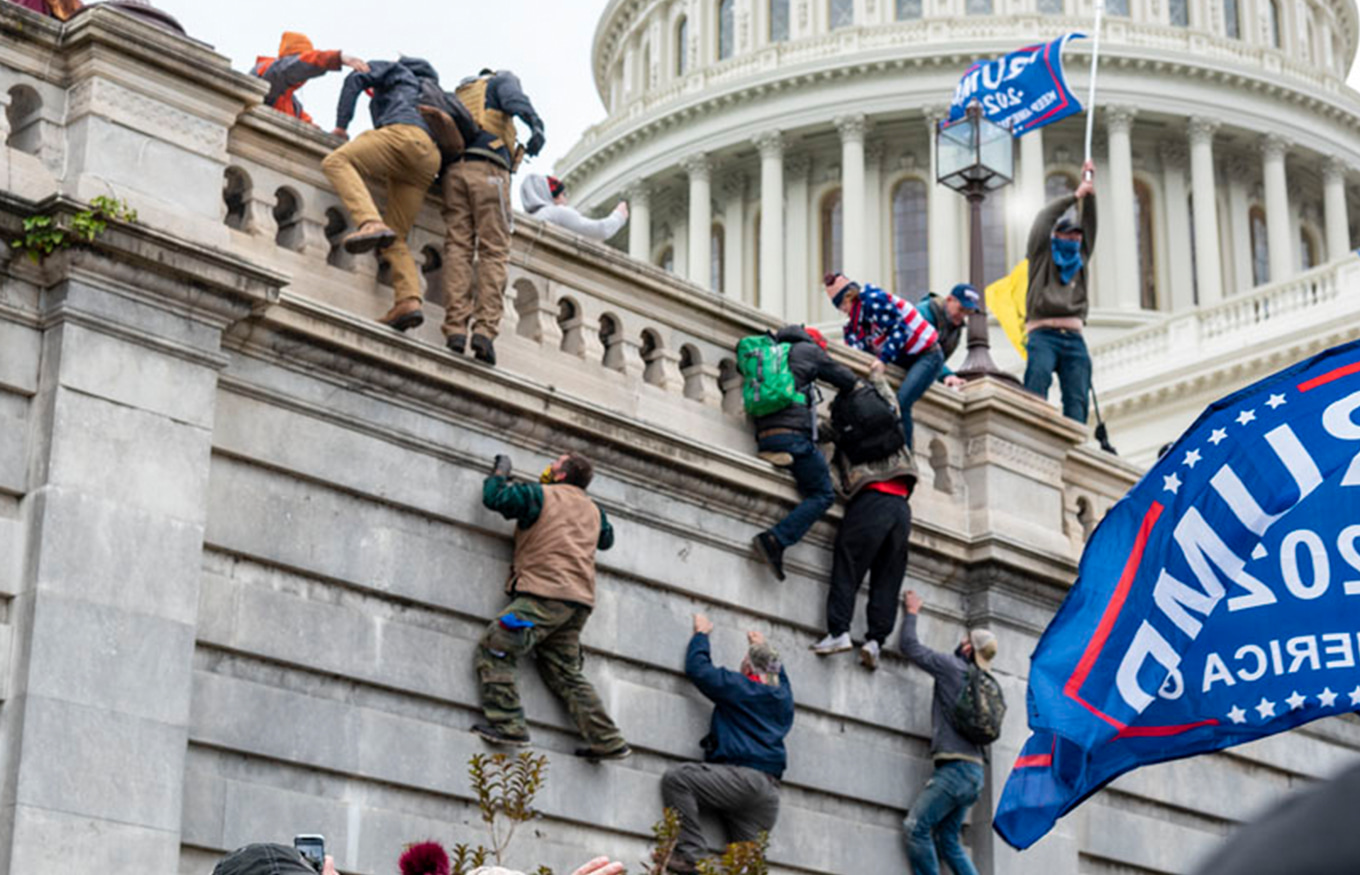 Photo credit: Blink O'fanaye / CC BY-NC 2.0
Photo credit: Blink O'fanaye / CC BY-NC 2.0
Analysis
21 Things to Remember about January 6th and its Aftermath
An Issue One Index
A year after the deadly January 6th insurrection, it’s clear the lies and disinformation that led to throngs of rioters overrunning the Capitol as Congress met to count the Electoral College votes has only gotten worse. The spread of this disinformation has poisoned political discourse and served as justification for states to pass new election laws that make it harder to vote and easier for partisans to take over election administration for political gain.
The attempt to disrupt the peaceful transfer of presidential power on January 6, 2021, shook the nation. As Rep. Peter Meijer (R-MI) has warned: “That this mob attacked the Capitol with the encouragement of prominent elected officials is a chilling reminder of President Reagan’s warning that ‘freedom is never more than one generation away from extinction’ … If we avoid confronting what happened [on January 6th], we can be sure that intimidation, coercion, and violence will become a defining feature of our politics for generations to come.”
What should history remember about the January 6th attack on the Capitol and its aftermath? Here are some of the most important facts and statistics that illustrate why it’s critical to remain steadfastly committed to protecting our democracy and our democratic institutions, where the will of the voters determines the outcome of elections.
***
![]() Click fact to tweet each stat
Click fact to tweet each stat
- Number of times that the Electoral Count Act of 1887, which outlines the role of Congress in counting Electoral College votes every four years on January 6, has been significantly modified since its enactment: 0
- Number of police officers who died in connection to the January 6th attack on the Capitol: 5
- Minimum number of police officers who were injured: 150
- Estimated number of police officers who have left the Capitol Police force since January 6th: 200
- Minimum number of people who have been criminally charged for their involvement with the January 6th insurrection: 725
- Amount of prison time that a New Jersey man was sentenced to for attempting to obstruct Congress’ counting of the Electoral College votes on January 6th and for assaulting a police officer by punching him in the face: 3 years and 5 months
- Time after rioters breached the Capitol that President Donald Trump called them “very special people” that he “loved”: 2 hours and 6 minutes
- Number of court cases brought by President Donald Trump and his allies that successfully proved widespread fraud in the 2020 election: 0
- Percentage of congressional Republicans who objected to counting some states’ Electoral College votes on January 6th: 56
- Percentage of congressional Republicans who voted to establish an independent, bipartisan commission to investigate the January 6th attack on the Capitol: 16
- Number of companies that pledged, after January 6th, to stop giving campaign contributions to politicians who objected to the results of the 2020 election: 248
- Estimated portion of those companies that have reneged on those pledges: 1 in 3
- Amount of money that Publix supermarket heiress Julie Fancelli donated to three groups that staged and promoted the pro-Trump rally on January 6th that helped propel the riot: $650,000
- Amount of money that former Overstock.com CEO Patrick Bryne’s nonprofit contributed to help fund a partisan investigation of the election results in Maricopa County, Arizona: $3.25 million
- Minimum number of candidates who are running for secretary of state in battleground states who have falsely claimed the 2020 election was stolen or called for their states’ results to be invalidated or further investigated: 10
- Percentage points by which Republicans’ confidence dropped between October 2020 and October 2021 that their own votes will be counted fairly in elections: 43
- Number of times Senate Republicans have filibustered voting rights legislation during the past year: 4
- Number of states that have enacted legislation during the past year that has made it harder for Americans to vote: 19
- Number of states that have enacted legislation to place election administration under greater partisan control: 3
- Estimated portion of election officials who were concerned about being harassed during the 2020 election: 1 in 3
- Number of criminal convictions in the past year in cases stemming from threats against election officials and their families: 0
Sources: Brennan Center for Justice, CBS News, Citizens for Responsibility and Ethics in Washington, CNN, Congress.gov, NBC News, New York Times, Reuters, testimony of U.S. Capitol Police Inspector General Michael Bolton, USA Today, and Washington Post.

You Might Be Interested In
No related articles available.


